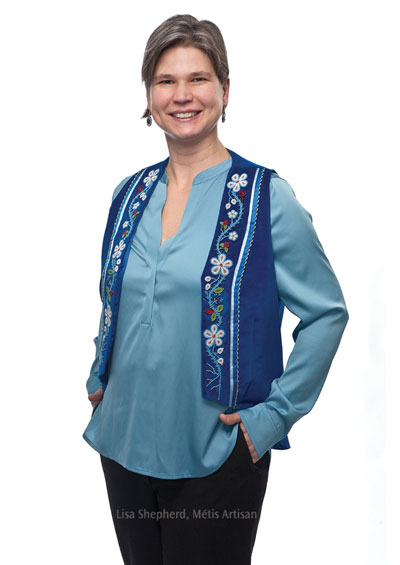Doctor works to take race out of health care
- Angela Hill | March 20, 2015
Dr. Janet Smylie has spent a lot of time in the media spotlight of late.
The family physician and researcher was catapulted from
the comfort of her day-to-day work of combining aboriginal culture with
health-care, when the Toronto-based health research and policy group, the Wellesley
Institute, published her paper, First Peoples, Second Class Treatment.
Smylie and co-author Dr. Billie Allan wrote that racism
against Indigenous Peoples in health care is so bad that people plan on how to
deal with it before going for medical help or simply avoid care altogether.
But what she wrote about in that paper didn’t come as a
surprise to the 47-year-old Smylie, who is one of the first Métis doctors in
Canada.
“In my life and medical practice I am aware that racism
happens and it’s a big deal,” she said.
“We used to make a joke when I graduated. I graduated
when I was 23, and people were quite shocked to see me and some people got
scared. So I used to say, ‘I’m Doogie Howser’s half-breed sister.’”
She said at points during her medical training she would
hear people make assumptions about aboriginal people.
“Like the teaching point of a resident was, ‘these
people have a lot of babies and don’t know how to care for them,’” Smylie said.
“That kind of shocking stuff would actually come out of
people’s mouths.”
She said she wondered if people were saying things like
that around her, how bad they were treating others. Those incidents created the
focal point of Smylie’s career – to make a change to previously held ideas and create
a supportive environment for aboriginal people to access health care.
Smylie has been a doctor for about 23 years; she started
her career at the Ottawa General Hospital before moving to be a physician with
Anishnawbe Health in Toronto. From being a family doctor Smylie connected with
the University of Toronto to teach family medicine before beginning research
projects. She has even spent time in Saskatchewan as the past director of the Indigenous
Peoples Health Research Centre and a former associate professor at the
University of Saskatchewan.
Her work in connecting aboriginal people with the health
system, and her hand in creating the Aboriginal-based birth centre in Toronto
earned Smylie the prestigious National Aboriginal Achievement Award in 2012.
Why does she keep fighting for these rights and working
to make a difference?
“I come from a long line of ... fairly vocal people,”
she said, with a laugh.
“Humility is important and sense of humour is important
… The drive just was just in me, comes from my family, from my ancestors, my
community now.”
Smylie doesn’t show signs of slowing down. She plans on
continuing to gather evidence and cases of racism within the health system to
build on First Peoples, Second Class Treatment and looking for ways to
challenge the mainstream.
She continues as a researcher for the Centre for Research on Inner City Health, a physician at St. Michael's Hospital in Toronto, and associate professor at the University of Toronto’s Dalla Lana School of Public Health.

